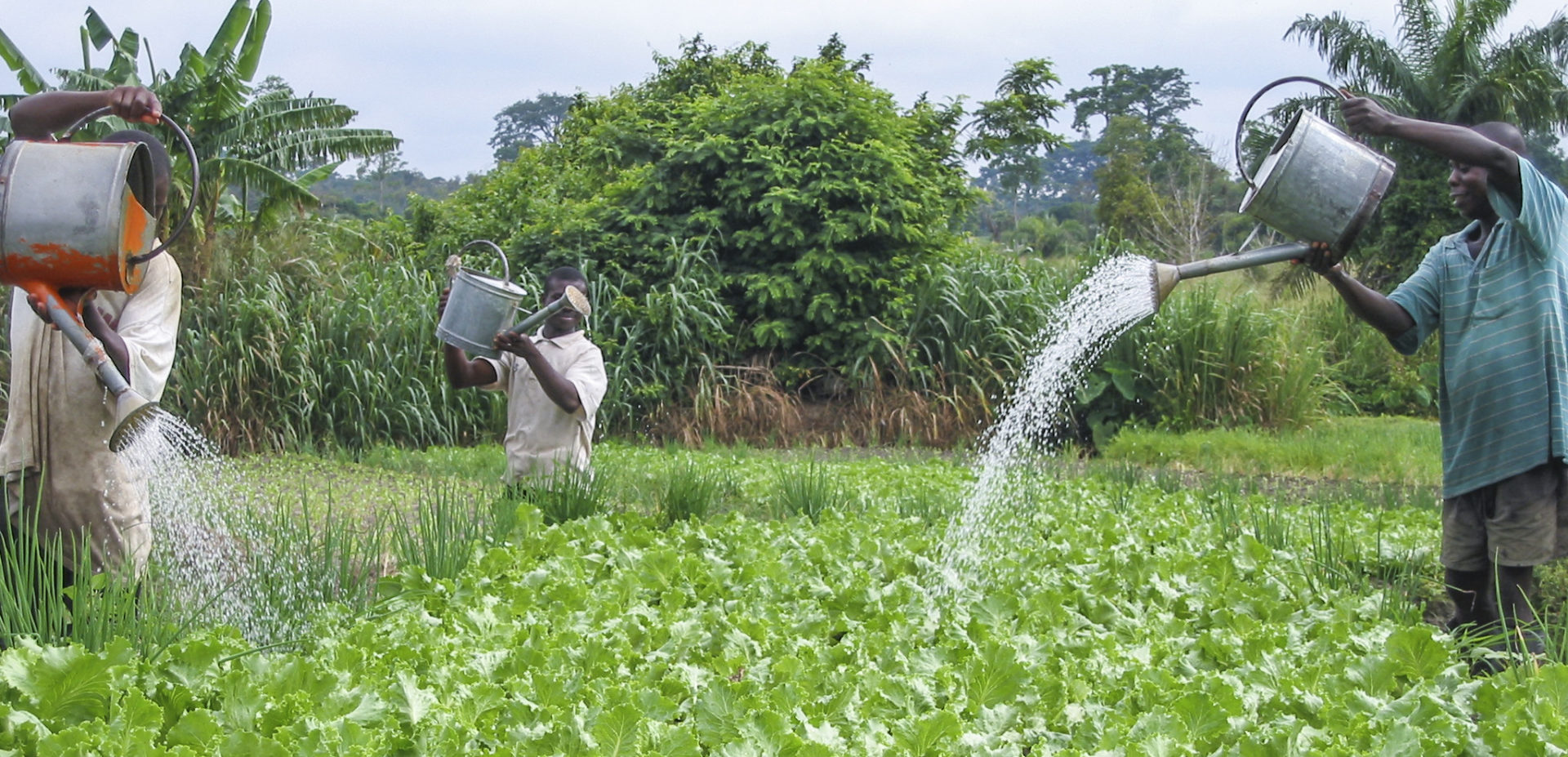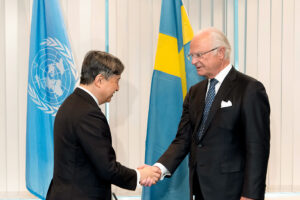- SIWI – Leading expert in water governance
- /
- Latest
- /
- Important global meetings on food and energy
Important global meetings on food and energy

The United Nations urges the world to rapidly transform both food and energy production and has invited global leaders to a food systems summit and an energy dialogue. SIWI will follow the meetings, on 23-24 September, with great interest since food and energy are inextricably linked to water.
The 76th session of the United Nations General Assembly (UNGA) officially opened on Tuesday 14 September and will focus on building resilience. Food and energy are often described as two of the sectors in most urgent need of transformation. The aim of the global meetings is to catapult action on energy and food to make progress on the Sustainable Development Goals (SDGs).
The Food Systems Summit
UN Secretary-General Antonio Guterres will convene the first-ever UN Food Systems Summit on 23 September to examine how food systems can advance progress on the Sustainable Development Goals. The global food system is one of the largest contributors to climate change, responsible for one-third of all planet-warming emissions. At the same time, the sector is especially vulnerable to climate change shocks.
The Food Systems Summit is setting the stage for global food systems transformation to achieve the Sustainable Development Goals by 2030. The Summit will launch bold new actions to deliver progress on all 17 SDGs, each of which relies to some degree on healthier, more sustainable, and equitable food systems.
Just last month at World Water Week, Agnes Kalibata, Special Envoy of the UN Secretary-General for the 2021 Food Systems Summit, addressed the World Water Week audience about the need for a comprehensive approach to food. She stressed that food systems cannot be improved if the implications of climate change on water for agriculture are not addressed. In many parts of the world, farmers are dependent on rainfed agriculture. Thus, resilience in the food system is conditional on the improvement of water management and governance, not the least to prevent malnourishment, hunger, and conflict vulnerability.
This was echoed by Ertharin Cousin, former Executive Director of the World Food Programme, who urged the water community to join forces with the food community to tackle the goals behind the Food Systems Summit. More research and data from the water community are needed to create a sustainable and resilient food system that consumes less water, from farm to fork. It is imperative that we all must work together to transform the way the world produces and consumes food and values water as part of the same system.
SIWI’s expertise and activities on rainfed agriculture, nutrition, and the water-food nexus is more relevant than ever as the UN Food System Summit charts the path forward on how all stakeholders can contribute to transforming the world’s food systems.
The High-Level Dialogue on Energy
Secretary-General Guterres will also host a High-level Dialogue on Energy on 24 September to promote energy-related targets of the 2030 Agenda for Sustainable Development. This will be the first UN conference dedicated to energy under the auspices of the UN General Assembly since 1981.
The overarching goal of the High-level Dialogue on Energy is to promote the implementation of the energy-related goals and targets of the 2030 Agenda for Sustainable Development. Member States, companies, regional and local governments, and nongovernmental organizations (NGOs) will have the opportunity at this Dialogue to register commitments toward SDG7 (Access to affordable, reliable, sustainable, and modern energy for all) through “Energy Compacts.”
The Dialogue aims to raise ambition and accelerate action towards the achievement of the SDG 7 energy targets and there are several important synergies between the 2030 energy targets and the global challenge to combat the water crisis.
Usha Rao-Monari, the Associate Administrator of UNDP spoke at the Closing Plenary of this year’s World Water Week about the positive spillover effects that improvements in energy efficiency has on water, and vice versa. More efficient energy use can, for instance, improve wastewater management thereby contributing to ensuring clean water to more people. By having wastewater treatment energized by renewables and implementing waste to fuel- and circular grey water approaches, we can supplement both water and energy needs. Similarly, better water management and governance structures can cut redundant energy use.
Connecting water and energy to the theme of food and agriculture, she also highlighted that increased sustainability in agriculture can help us meet both energy and water targets. If we reduce the usage of fertilizers in agriculture, we can increase the accessibility to portable water and at the same time cut greenhouse gas emissions from nitrogen. A more sustainable food system can also decrease our needs for energy and water. We can reduce food loss by using effective energy and water techniques, such as cool chains for food storage and distribution, that also cut greenhouse gas emissions and water exploitation.
These two timely summits on Food and Energy elevate the importance – the value – of water as a natural resource that food and energy systems depend upon but also an enabler for achieving the food and energy goals that will ensure a sustainable and more resilient future starting – now.
United Nations General Assembly, 76th session
The 76th session of the United Nations General Assembly (UNGA) is gathering representatives from all 193 UN member states around the theme, “Building resilience through hope – to recover from Covid-19, rebuild sustainability, respond to the needs of the planet, respect the rights of people, and revitalize the United Nations.” The theme thus echoes the World Water Week 2021 theme of “Building Resilience Faster”.
Most recent

Strengthening the Board of Stockholm Water Foundation (SWF)
- Stockholm Water Prize
- Stockholm Junior Water Prize
- Youth and water
- World Water Week

Water is our future – but Sweden still lacks a comprehensive strategy
- Water and the 2030 Agenda
- Groundwater
- Agriculture and water
- Cities
- Disaster risks and water

Sweden and Japan Join Forces on Water and Climate at High-Level Tokyo Seminar
- Swedish Water House
- Water and climate
- Water cooperation

Water for Climate in Baku

In loving memory of Kasonde Mulenga



